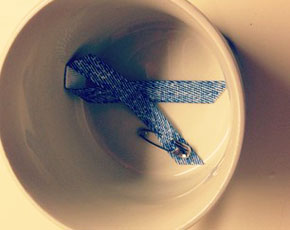
February 28 is an annual observance to raise awareness for rare and genetic diseases and improve access to treatments and medical representation for individuals with these diseases and their families.
The Wear That You Care Campaign is an initiative of the Global Genes Project, which has been working to increase awareness of rare and genetic diseases, public and physician education, building community through social media and supporting research initiatives to find treatments and cures.
Even though individual rare diseases have a small patient population, collectively the rare disease community is much larger than that of the Cancer and AIDS communities combined. However, despite the size of the community, it lacks a unified voice as only 15 per cent of these rare communities have foundations that provide support or conduct research.
Rare and genetic diseases affect 300 million people globally. It is estimated that 95 per cent of all rare diseases do not have a single FDA approved drug treatment, and there are currently less than 400 treatments approved by the FDA for the nearly 7000 rare diseases, which have been identified. Out of the 7,000 distinct rare diseases that exist, approximately 80 per cent are caused by faulty genes.
According to estimates from the National Institute of Health, it will take 10,000 years at the current rate of FDA drug approvals to find therapies for all people suffering from rare and genetic diseases. To speed this process up, everyone needs to get involved because every minute we choose not to; we lose a life.

Millions of lives can be saved and futures protected just by supporting this cause. The first step is raising awareness of what the Blue Denim Ribbon stands for and acknowledging the existence of rare and genetic diseases. Where the pink ribbon represents breast cancer, the red ribbon stands for AIDS, the red dress is for cardiovascular diseases; denim jeans are for Rare and Genetic Diseases.

Anyone can support this cause by taking part in the Wear That You Care campaign on World Rare Disease Day. It is simple: Slip into your favorite pair of jeans on 28 February. You can "virtually" Wear That You Care on Facebook by supporting this event and by spreading the word to your friends or changing your timeline photo to the Wear That You Care image or one of you in your favorite pair of jeans to recognise Rare Disease Day. You can also wear the Blue Denim Genes Ribbon or even create awareness signs. Taking pictures of the above and posting it on Facebook will help raise awareness, with the hope that funds for research might follow.
So, wear jeans or the Blue Denim Genes Ribbon, take a picture of you in your jeans or "Genes" ribbon and post on the campaign facebook page or your profile.
Even if you don't plan on wearing wearing jeans tomorrow, consider telling someone about this. Our hope is that awareness will help save millions.
The Wear That You Care Campaign Facebook page.
The RARE List is comprised of approximately 7,000 different rare diseases and disorders affecting more than 300 million people worldwide.
Rare diseases with FDA-approved medical products.
Learning About Genetic Disease.











































